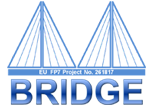Innovative European Solutions in Managing the Mega-Crisis
Friedrich Steinhäusler, University of Salzburg
Abstract
Member States of the European Union (EU) have experienced several mega-crises in the past decade, such as: (a) the 100-year floods which overwhelmed national resources in Austria, Croatia, Czech Republic, Germany, Hungary, Poland, Romania, and Slovakia in August 2002; (b) winds with speeds up to 140 km/h spreading floods inland and destroying buildings in Belgium, France, Germany, Portugal and Spain in February 2010; (c) a 6.3 magnitude earthquake leaving tens of thousands homeless in central Italy in April 2009. Catastrophes of such magnitude are difficult to predict and involve excessive costs associated with preparatory actions. In view of their limited resources, several Member States remain unprepared or under-prepared for managing such a mega-crisis.
Recognizing the deficiency among some of its Member States, the European Commission tasked inter alia three consortia within the 7th Framework Programme to develop innovative solutions in managing a mega-crisis, emphasizing the need to be practically applicable in order to be accepted by the EU first responder (FR) community: BRIDGE, CAST and CATO. This paper reviews the innovative R&D solutions developed by these consortia with regard to mega-crisis management over the past three years.
Proceedings of the 46th Session of the International Seminars on Nuclear War and Planetary Emergencies,
Erice, Italy, 19-24 August 2013.



